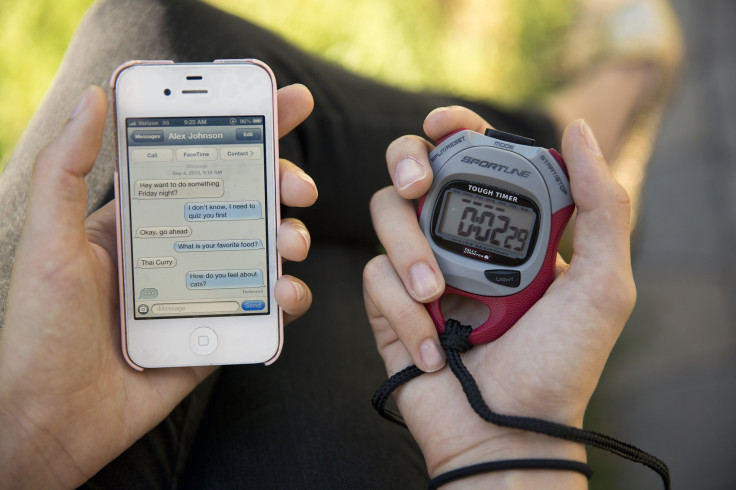Texters Who Lie Take Longer To Respond: BYU Scientist Explore How To Detect Deception In Your Digital Messages

People who lie during digital conversations, like texting or messaging on Facebook, take longer to respond, according to new research from Brigham Young University (BYU). The findings were published today in the journal ACM Transactions on Management Information Systems.
"Digital conversations are a fertile ground for deception because people can easily conceal their identity and their messages often appear credible," said Dr. Tom Meservy, a professor of information systems at BYU. "Unfortunately, humans are terrible at detecting deception. We're creating methods to correct that."
Deception and digital conversation are old bed partners — remember a/s/l and chat rooms? — but recently the art of lying online has become most pertinent during breakups and divorces. The American Association of Matrimonial Lawyers (AAML) has reported that evidence from social media factors into 81 percent of all divorce cases. Facebook is the number one culprit in these proceedings, although incriminating texts sent by smartphones are becoming more and more common in nasty split ups, according to the AAML.
To determine if patterns in how people text could reveal if they’re lying, Meservy and his colleagues recruited 100 students from two large universities: one in the southeastern U.S. and the other in the southwest. Each participant was asked to carry out an online conversation with a computer program designed by the researchers, where they were asked a series of 30 questions. Before they began, the volunteers were told to lie in half of their responses.
The experience resembled the type that a consumer might have with an online customer service department, except the computer program also tracked how often the volunteers edited their reply and the time spent on writing it.
The researchers found that replies filled with lies took 10 percent longer to create and were edited more than truthful messages.
Humans can only detect lies about 54 percent of the time, so the researchers are hoping to design algorithms that improve our ability to catch fibs. Not only could this be helpful with interpersonal relationships, but it could also be applied to business and security scenarios.
"We are starting to identify signs given off by individuals that aren't easily tracked by humans," Meservy continued. "The potential is that chat-based systems could be created to track deception in real-time."
Next, the team plans to create a system with Microsoft’s Kinect to track deception in human behavior.
"We are just at the beginning of this," said co-author Dr. Jeffrey Jenkins, who is also an information systems specialist at BYU.
Source: Derrick DC, Meservy TO, Jenkins JL, Burgoon JK, Nunamaker Jr. JF. Detecting deceptive chat-based communication using typing behavior and message cues. ACM Transactions on Management Information Systems. 2013.
Published by Medicaldaily.com



























